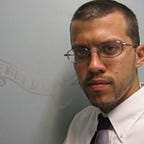Motocross In the Family
By Trey Kodman
“Motocross racing is brutal. You get lots of broken bones.”
From the look and demeanor of James Wilson, a regional professional motocross racer living in Eugene, Oregon, his answer matched for what story he would use to introduce himself to strangers at a bar. “I have one wreck in mind that always comes up in conversation, and it was horrible.”
“For the most part, we were racing in the dust, and at the top speed of my bike. I came off of it. I hit a gate head-on,” Wilson said. “I compound fractured my femur, broke my pelvis in three spots, broke my hand, shattered my ankle, crack my skull, and obviously had a major concussion.”
There was nothing worthy of preparing anyone for what James Wilson, №23AA, said next.
“And then the guys picked me up off the ground and threw me in the front seat of the pickup to fall asleep for the next six hours. After I woke up, I went to the hospital.”
This is the type of war story motocross riders of all ages and experience levels have to share with those who dare ask. But they tell stories with the most gore at their own volition. Superstition usually rules the roost when it comes to talking about past injuries, though.
Yet, everyone in motocross starts somewhere. James Wilson shared how he had an edge passed down through his uncle.
“I knew I was a worthy opponent before I even started racing,” Wilson confidently said. “My uncle trained me well. He’s very known all over the West Coast. He raced locally, and then he did some Western National stuff.”
Wilson continued about his motocross roots, “In 1994, is when it all started. My uncle got me into it. He bought me a bike, took me riding, and it just kept going from there. And for the most part, I haven’t stopped since then.”
“He continues to race to this day. He’s over 50 years old now. Just on the west coast. Yeah, there’s a lot of influence,” Wilson said further about his uncle’s contributions.
“My very first race was in 1997, and it was at a National. I went into the Junior class. I was 12 years old and I won by a gap. I had a pretty good gap on the next guys, and these are national-level Juniors,” Wilson said. “So, from there, I was always within the top three of my class. I just kept moving up classes until, you know, you get to the elite class. And I also have done well there.”
“I did the elite class for four years before I took about a two-year break from racing, and then I came back. Now, I’ve been back in it for three and am one of the old men in the pro class. So, I’ve been there and done that when it comes to racing,” Wilson said.
“Well, I started racing at Territorial in 1998 or 99, but it was just hit and miss,” Wilson said about the flagship track of Eugene on Territorial Highway. “But the past three or four years now, I’ve been racing there pretty consistently.”
When Wilson was asked about his favorite event ever competed in, he said, “It was a national cross country hare scramble in Elkton, Oregon. I was able to race it one year and did pretty well against all the national-level guys,” Wilson said. “I ended up placing eighth overall. And it was well over 30 pro riders in that class, all national level. So, I was happy with that event.”
“They call it a hare scrambles, which is a three-hour race,” Wilson explained the event in further detail. “So, after the three-hour mark, they waive the checkered flag. Same sort of thing as the Grand Prix, woods, and trail riding.”
“I think one of my favorites is they still currently run it and I still currently races down in Bandon, Oregon, they have a GP called The Smoking Rabbit Gap.” Wilson shared about another event he enjoys attending. “And it’s always great. It’s a two-day event. Bring the family to camp. Have fun. Trails are awesome. And it’s just a really good atmosphere.”
Wilson’s future in the sport is not destined to always be the guy on the bike catching holeshots, scrubbing hills, and sending it as far as possible when called for. He also has the next generation to give insight he received or learned on his own.
“You obviously want to keep the future of the sport going just because it’s fun and it keeps you busy,” Wilson said. “And it’s a good thing to do out of trouble. So I’m always cheering on the local kids and my kids and doing what I can for all the young people.”
“So many kids ask questions, I have answers, and I do help them.” Wilson continued.
“There are a couple of local kids that do,” Wilson said visibly getting more serious as he discussed his contributions to newer rider’s knowledge. “You can tell they look up to me and they like to ask questions and, you know, ‘how do you go so fast?’ and you know, ‘it’s just not something that instantly happens.’ I just tell them, ‘you just keep riding and it’ll come.’ ‘Definitely ride with faster guys and you will become a faster guy.’”
